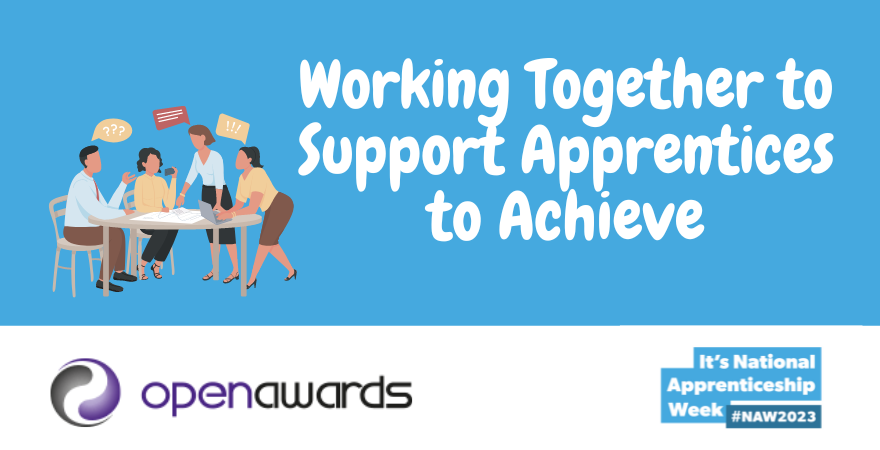
There is an ongoing debate about achievement rates amongst apprentices, particularly in relation to apprentices leaving their course without completing their End-point Assessment.
The benefits for an apprentice completing their End-point Assessment and achieving the full apprenticeship are evidenced and widely understood across the sector. However, the reasons for apprentices leaving their apprenticeship are multidimension and unique to each apprentice.
So, what can we do to support apprentices?
- Difficulty with the training or coursework: A training provider can support the apprentice by offering targeted resources or support such as tutoring, additional study materials, or flexible scheduling to meet individual needs. An End-point Assessment Organisation (EPAO) can offer additional support by providing additional guidance and resources to help the apprentice prepare for their assessment.
- Lack of motivation: A training provider can support the apprentice by providing regular check-ins to discuss progress, providing opportunities for the apprentice to take on leadership roles, or involving in projects with other apprentices that align with their interests. An EPAO can also offer support by providing regular progress updates, offer feedback and guidance, and also by providing recognition of the progress already made.
- Personal or family circumstances: A training provider can support the apprentice by offering flexible scheduling or accommodations, and providing resources such as access to counselling services. An EPAO can provide support by offering the apprentice the opportunity to take the assessment at a different location or time where this is permissible by the Standard.
- Better job opportunities: A training provider can support the apprentice by providing networking opportunities and connecting the apprentice with potential employers. An EPAO can support the apprentice by providing a report on their performance in the assessment, which can be used as evidence of the apprentice's skills and knowledge for future job applications.
- Lack of support: A training provider can support the apprentice by providing regular check-ins to discuss progress and involve the employer to establish support needs. An EPAO can support the apprentice by providing additional resources such as study guides and practice assessments to help the apprentice succeed.
- Financial Issues: A training provider can support the apprentice by providing information about financial assistance options such as scholarships or grants, and by offering flexible payment plans. An EPAO can support the apprentice by signposting to organisations who can provide support to apprentices.
It's worth noting that, the support provided should be tailored to the individual needs of the apprentice and should be flexible enough to change as the situation changes. Additionally, the communication between the training provider, the employer, the EPAO and the apprentice should be open, regular and proactive. It’s only by working collaboratively to support our apprentices, that we can overcome some of the barriers to completion that are becoming too common across the sector.
